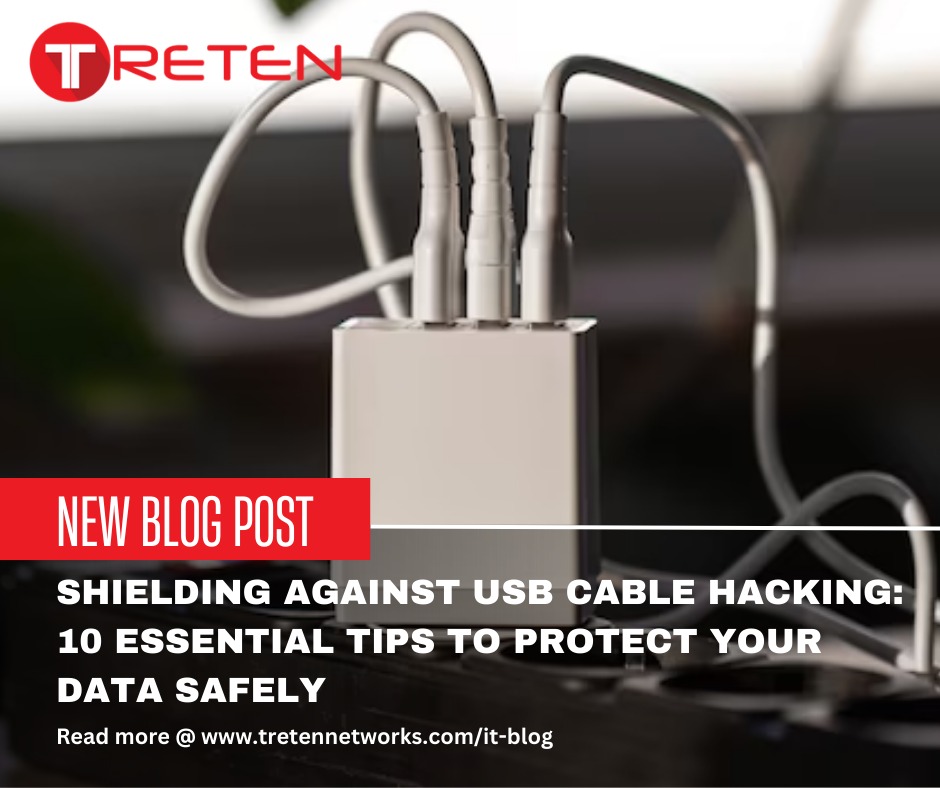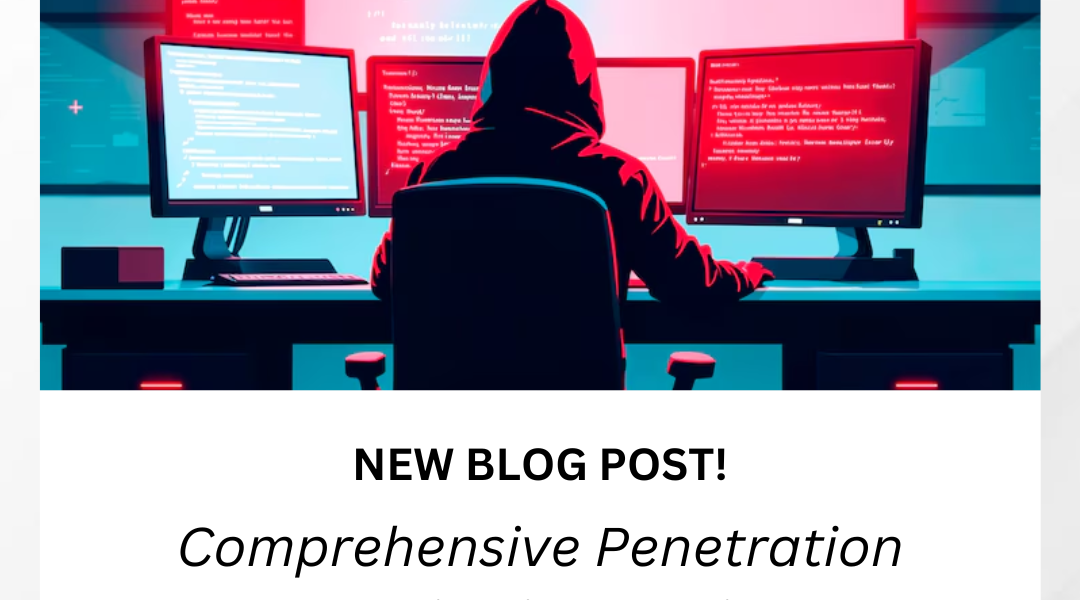Shielding Against USB Cable Hacking: 10 Essential Tips to Protect Your Data Safely
In today’s interconnected world, USB cables have become an integral part of our daily lives, powering our devices from smartphones to laptops and network equipment. However, what may seem like an innocent charging cable can be a potential gateway for cyberattacks. This blog will delve into the dangers of USB cable hacking, providing practical tips to safeguard your devices and data, and outlining advanced security strategies leveraging cutting-edge technologies from industry leaders.
Understanding the Threat
USB cable hacking, often referred to as “juice jacking,” involves the exploitation of USB ports to inject malware, steal data, or gain unauthorized access to devices. Malicious cables can be designed to:
- Install Malware: Introduce harmful software into your device.
- Steal Sensitive Data: Access and exfiltrate personal or corporate information.
- Gain Remote Access: Take control of your device remotely.
Common Techniques Used by Cybercriminals
Cybercriminals employ various techniques to exploit USB cables:
- Hardware Manipulation: Altering the physical structure of the cable to include malicious components.
- Software Exploitation: Using malicious software to compromise your device when it’s connected to a seemingly innocent cable.
- Phishing Attacks: Deceiving users into connecting their devices to compromised charging stations or cables.
The Importance of Protecting Your Data
USB cable hacking can have severe consequences, including:
Essential Tips to Protect Yourself
For Individuals:
-
Prioritize Trusted Sources:
- Purchase USB cables and chargers from reputable brands and authorized retailers.
- Avoid using cables from unknown or untrusted sources, especially those found in public places.
-
Exercise Caution with Public Charging Stations:
- Refrain from using public charging stations whenever possible.
- If you must use a public charging station, opt for a power-only cable or a USB data blocker.
-
Carry Your Own Charging Accessories:
- Always travel with your personal charging cable and wall adapter.
- Consider using a power-only cable that disables data transfer capabilities.
-
Invest in a USB Data Blocker:
- A USB data blocker, also known as a “USB condom,” physically prevents data transfer while allowing power to flow through.
-
Disable Data Transfer on Your Device:
- Many devices allow you to configure USB connections to “Charge Only” mode.
- This setting restricts the device from transferring data, minimizing potential risks.
-
Inspect Cables for Signs of Tampering:
- Before plugging in a cable, carefully examine it for any unusual features, such as extra thickness, additional components, or suspicious labels.
-
Stay Updated with Security Patches:
- Regularly update your device’s operating system and security software to address vulnerabilities that could be exploited by malicious actors.
-
Utilize Portable Power Banks:
- Carry a portable power bank to charge your devices, eliminating the need to rely on public charging stations.
-
Use Encryption Software:
- Encrypt your data on your device to protect it from unauthorized access, even if your device falls into the wrong hands.
- Consider using strong encryption algorithms and complex passwords to safeguard your data.
-
Be Cautious of Wireless Charging: While wireless charging is convenient, it can still be vulnerable to hacking attacks. Use reputable wireless chargers and keep your device’s firmware up-to-date.
For Organizations:
- Implement Strict Device Policies:
- Enforce policies that prohibit the use of personal USB devices on company networks and strictly regulate the use of authorized devices.
- Deploy Network Security Measures:
- Utilize network segmentation and access control lists (ACLs) to limit the impact of potential attacks.
- Implement intrusion detection and prevention systems (IDPS) to monitor network traffic for suspicious activity.
- Leverage Cisco Networking solutions for robust network security and visibility.
- Utilize network segmentation and access control lists (ACLs) to limit the impact of potential attacks.
- Educate Employees:
- Conduct regular cybersecurity awareness training to educate employees about the risks of USB cable hacking and other cyber threats.
- Emphasize the importance of following best practices and reporting suspicious activity.
- Utilize Endpoint Security Solutions:
- Deploy endpoint security solutions from Sophos and Palo Alto Networks to detect and prevent malicious USB devices from connecting to company networks.
- Consider Hardware-Based Security Solutions:
- Implement hardware-based security measures, such as USB port blockers or device authentication systems, to further protect network devices.
- Leverage Network Automation:
- Utilize network automation tools like NetBrain to streamline network operations, identify vulnerabilities, and respond to threats more efficiently.
- Ensure Secure Network Performance Monitoring:
- Employ network performance monitoring solutions from Netscout to identify anomalies, detect potential threats, and optimize network performance.
- Implement Robust Cloud Security:
- Utilize cloud security solutions from Zscaler and Netskope to secure your cloud infrastructure and data.
- Prioritize Industrial Cybersecurity:
- If you operate in an industrial setting, implement industrial cybersecurity solutions from Claroty to safeguard critical infrastructure.
- If you operate in an industrial setting, implement industrial cybersecurity solutions from Claroty to safeguard critical infrastructure.
- Secure Your Data Center Infrastructure:
- Partner with reliable data center providers like Africa Data Centres to ensure the physical and logical security of your data center environment.
A Real-World Case Study: The Marriott Data Breach
In 2018, Marriott International suffered a massive data breach that exposed the personal information of millions of guests. While the specific cause of the breach remains unclear, it highlights the importance of robust security measures, including protecting against USB-based attacks.
By implementing strong access controls, regularly patching systems, and conducting regular security audits, organizations can significantly reduce the risk of data breaches.
Advanced Security Strategies with Industry-Leading Vendors
To further enhance your organization’s security posture, consider incorporating these advanced security solutions:
- Application Delivery Controllers (ADCs):
- Utilize F5 ADCs to protect web applications and APIs from attacks, such as DDoS attacks and web application vulnerabilities.
- Network Security:
- Deploy advanced network security solutions from Fortinet, Palo Alto Networks, and Checkpoint to protect your network perimeter and prevent unauthorized access.
- Cloud Security:
- Implement cloud security solutions from Zscaler and Netskope to secure your cloud infrastructure and data.
- Network Optimization:
- Utilize network optimization solutions from Sandvine to improve network performance and reduce latency.
- Network Performance Monitoring:
- Employ network performance monitoring solutions from Netscout to identify anomalies, detect potential threats, and optimize network performance.
- Industrial Cybersecurity:
- Implement industrial cybersecurity solutions from Claroty to safeguard critical infrastructure.
- Cloud Computing:
- Utilize cloud computing services from AWS to scale your infrastructure and leverage advanced security features.
By combining these advanced security measures with the fundamental tips outlined earlier, you can significantly reduce the risk of USB cable hacking and other cyber threats. Remember, staying informed, being vigilant, and adopting a proactive approach to security are essential in today’s ever-evolving threat landscape.
By following these essential tips and leveraging advanced security solutions from industry leaders like Cisco, F5, Juniper Networks, and more, you can significantly reduce the risk of USB cable hacking and other cyber threats. However, in today’s complex threat landscape, it’s crucial to have a comprehensive security strategy that evolves with the latest threats.
Our team of experts at Treten Networks can help you implement robust security measures to protect your organization.


